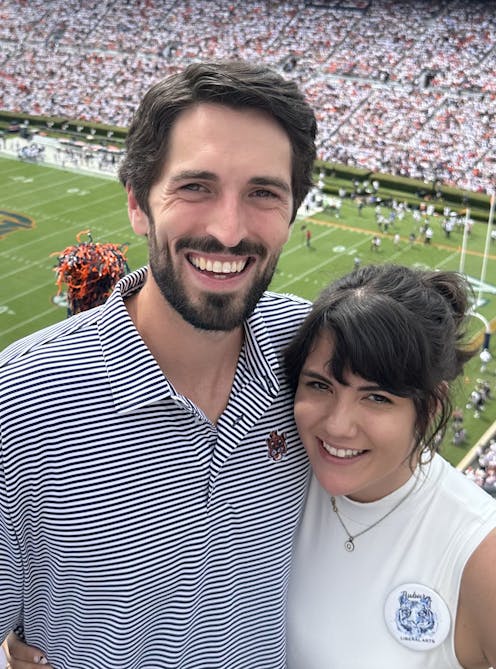I’m a political scientist, and the Alabama Supreme Court’s IVF ruling turned me into a reproductive-rights refugee
- Written by Spencer Goidel, Assistant Professor of Political Science, Auburn University
 Spencer and Gabby Goidel hadn't planned to become activists.Spencer and Gabby Goidel, CC BY-ND
Spencer and Gabby Goidel hadn't planned to become activists.Spencer and Gabby Goidel, CC BY-NDThe day before the Alabama Supreme Court ruled that frozen embryos created and used for in vitro fertilization are children, my wife, Gabby, and I were greenlighted by our doctors to begin the IVF process. We live in Alabama.
That Friday evening, Feb. 16,...
Read more: I’m a political scientist, and the Alabama Supreme Court’s IVF ruling turned me into a...

